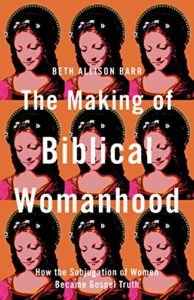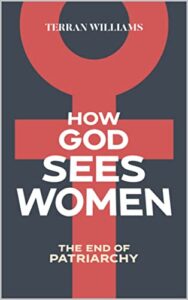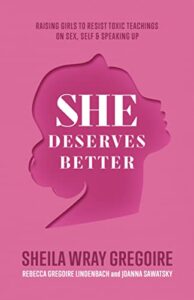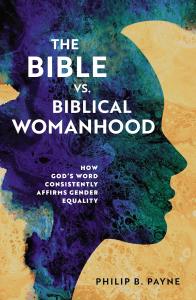I’ve read a lot of books in the last couple of years. These books helped me to understand more about how women are treated by the church. I’ve included the Amazon blurb for each, as well as a link to the Amazon listing for the book.





Reviews
“The Making of Biblical Womanhood: How the Subjugation of Women Became Gospel Truth” by Beth Allison Barr


This is another hard-history book, mixed with the author’s personal life story. Worth reading, especially if you are wondering about the complementarian/egalitarian divide, or if you’re wrestling with the role of women in Christian church culture.
(Reviewed January 2022)
Amazon description: Biblical womanhood–the belief that God designed women to be submissive wives, virtuous mothers, and joyful homemakers–pervades North American Christianity. From choices about careers to roles in local churches to relationship dynamics, this belief shapes the everyday lives of evangelical women. Yet biblical womanhood isn’t biblical, says Baylor University historian Beth Allison Barr. It arose from a series of clearly definable historical moments. This book moves the conversation about biblical womanhood beyond Greek grammar and into the realm of church history–ancient, medieval, and modern–to show that this belief is not divinely ordained but a product of human civilization that continues to creep into the church. Barr’s historical insights provide context for contemporary teachings about women’s roles in the church and help move the conversation forward. Interweaving her story as a Baptist pastor’s wife, Barr sheds light on the #ChurchToo movement and abuse scandals in Southern Baptist circles and the broader evangelical world, helping readers understand why biblical womanhood is more about human power structures than the message of Christ.
“How God Sees Women: The End of Patriarchy” by Terran Williams


I found this book to be a stunningly solid analysis of the topic of complementarianism — the idea that God designated men as the authority and rulers in the kingdom, and that women are not authorized to lead or teach, specifically in the church, but (some believe) also in any public sphere.
The author was a member of a leadership team in a complementarian church, and his church set about to write a defense of its doctrinal position on men and women’s authority, and assigned the author as a key member of the team, due to his expertise and training. Much to his surprise, as he began to study and exegete the scriptures around authority of men and women in the church, he arrived at the conclusion that complementarianism is wrong and largely indefensible from a scriptural perspective. He wrote the book to carefully document his process and his findings. It’s extremely careful in its treatment of the subject, specifically covering every significant verse used to support the doctrine. He also spends a fair amount of time explaining the cultural perspectives of the writers of the scriptures, and the immediate audiences of the various epistles. He also traces out the flow of thinking through church history on the subject.
Most of all, he clearly shows how the complementarian viewpoint has harmed women — and robbed the church of a huge God-given blessing over the centuries.
(Reviewed June 2022)
Amazon description: (There is no real Amazon description, other than a handful of affirmations for the quality of this book.)
“She Deserves Better: Raising Girls to Resist Toxic Teachings on Sex, Self, and Speaking Up” by Sheila Wray Gregoire, Rebecca Gregoire Lindenbach, and Joanna Sawatsky


I have a 20-something daughter, and I faithfully took her to year after year of purity dances (Father-Daughter Balls or whatever you might call them). I was convinced that it was a good way to ensure that she’d grow up with a strong and healthy sense of the right way to walk before God.
I never saw the potential – and likely – damage those teachings could cause.
This data-driven exploration of the actual, unvarnished outcome of those teachings is shocking to someone like me. I am an engineer by trade, and my world revolves around the proper interpretation of data even when it surprises me or confronts my understanding. This book presented me with data I could not ignore.
Sure, purity culture is founded in great ideas and great goals. But the data seems to show, rather unambiguously, that in the pursuit of those goals, it leaves behind a trail of lifelong harmful consequences for many, many women.
Whether or not you’re willing to believe this book’s conclusions, you ought to at least read it, so you can see the pitfalls of these purity teachings and try to mitigate them.
And if you have boys, don’t feel like this book isn’t relevant to you too. It is: you’ll see how the messages aimed mostly at girls also affect the young men, and compounds the problems.
It’s worth your time, hopefully long before you ever get to that first purity ball.
(Reviewed June 2023)
Amazon description: What if the goal of raising a Christian girl was about more than keeping her virginity intact? What if it was about raising a strong, independent young woman who knows who she is, uses her voice, and confidently steps into the life God has for her?
From the authors of The Great Sex Rescue comes this evidence-based book grounded on surveys of over 28,000 women to offer moms a fresh, freeing, and biblically grounded message of sexuality and self-worth for their daughters that is less about the don’ts and more about the dos.
This isn’t your average parenting book: no pat answers or overly broad principles here. No cliché prescriptives or toxic teachings that your daughter will have to unpack and recover from as an adult, like so many of us have. Instead, you’ll find data-driven insights about how to raise a woman who is resilient, knows her strength, and has the discernment skills needed to make good choices. By reframing (and sometimes replacing) common evangelical messages to teen girls, this book will equip you to raise a girl who can navigate the difficult waters of growing up while still clinging tight to the God who created her on purpose, for a purpose.
“The Bible vs. Biblical Womanhood: How God’s Word Consistently Affirms Gender Equality” by Philip Barton Payne


I’ll keep it short: if you’re devoted to the idea that men are ordained by God to be in charge, you need to read this book for a different perspective. I wish I’d read it years ago. Decades ago. Before I got married.
(Reviewed January 2025)
Amazon description: A biblical defense of egalitarianism that relies on Scripture to affirm gender equality in the church and in the home.
“Biblical womanhood” is the idea that the Bible teaches God-ordained male leadership and female submission in the home and subordination in the church. Some say this hierarchy of authority is sufficiently evidenced by examples of male leadership (and lack of female leadership) in the Bible: the first human was male, Israel’s official priests were male, most authors of Scripture were male, Jesus was male and chose twelve male Apostles. God is addressed as Father. Wives are commanded to submit to their husbands.
In The Bible vs. Biblical Womanhood, New Testament scholar Philip B. Payne argues that the very Bible passages that are often believed to teach male headship and female subordination actually teach gender equality. He demonstrates that the Bible does not endorse gender hierarchy but instead emphasizes:
– The Holy Spirit gifting all believers for ministry
– The oneness of the body of Christ (the church) and the priesthood of all believers
– Humility, service, and mutual submission required of all believers
– Freedom and willingness to relinquish freedom in order to spread the gospel
These concepts are examined in 14 Bible passages throughout the Old and New Testaments, using careful exploration of Greek and Hebrew word meanings, historical and cultural context, and examples from Scripture. Payne defends his position by providing detailed answers to common objections at the end of each chapter.
The Bible vs. Biblical Womanhood is for those struggling to reconcile the Bible’s seemingly contradictory teachings about man and woman. Readers will come away with greater confidence in the reliability of Scripture’s consistent, harmonious message of gender equality.
“Daughter of Breath: Poems” by Grace E. Kelley


(I have not read this book yet – I bought it to support the author, so this is a placeholder for now. I’ll update this review when I have read it.)
(Reviewed March 2025)
Amazon description: Daughter of Breath is a timely voice calling those lost in the wilderness created by church-sponsored patriarchy, misogyny, and queer phobia, to grieve, heal, and reclaim their authentic voices. Born from the ache of deeply personal, yet all too common experiences – the poems in Daughter of Breath will help you:
– create space to name what aches and to grieve the harm that has been caused you.
– reclaim your divinely given identity as Beloved, just as you are.
– move into the world with the power, freedom, and joy that can only come from being your whole self.
Including poems on topics such as: sexual abuse, medical gas lighting, generational trauma, wrestling with a queer identity, christian patriarchy, deconstruction, female friendship, vocation, and contemplative spiritual practices – Daughter of Breath will help you name the aches of your own experience, so you can move towards greater freedom and wholeness as a beloved child of the Divine.
I’ll update this list as my reading continues.
Disclaimer: As an Amazon Associate we earn from qualifying purchases, and we make a tiny bit of money – so far, just $16 – on these Amazon affiliate links. You can help support this blog simply by purchasing anything from Amazon within 24 hours of following one of these links.
